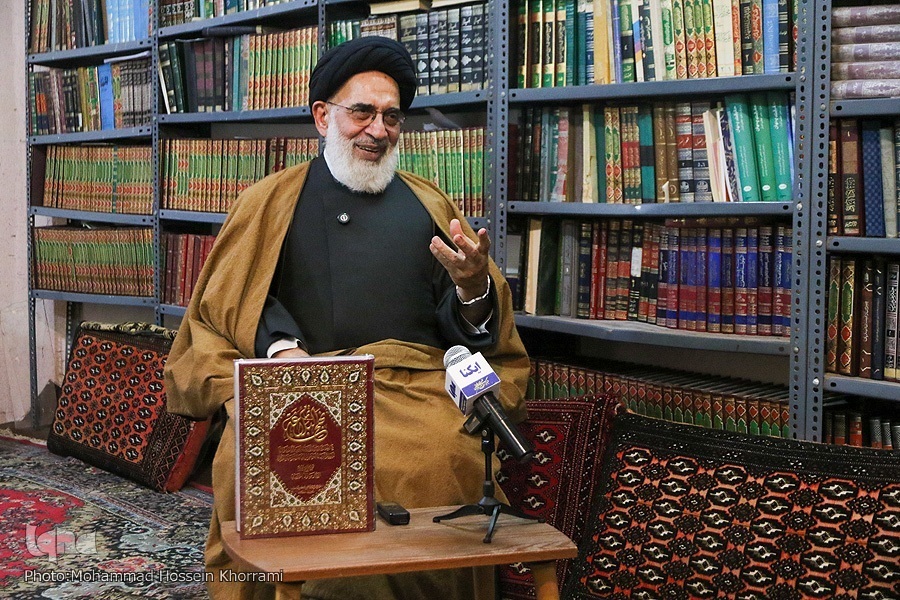AhlulBayt News Agency (ABNA): Arabic-language book, “All of Nahj al-Balagha”, offers a researched and complete compilation of Imam Ali’s (AS) sayings.
Compiled by Hojat-ol-Islam Seyyed Sadeq Mousavi, a Mashhad-based scholar, this work seeks to address historical gaps and challenges in understanding the essence of Imam Ali’s (AS) words as presented in Nahj al-Balagha, a celebrated collection traditionally attributed to Sharif Razi.
Mousavi highlights that Sharif Razi’s original goal was not to produce a definitive collection of Imam Ali’s (AS) sayings. Instead, Nahj al-Balagha was compiled in response to requests from others and was intended to be an evolving work. “Sharif Razi himself admitted in the preface that he left blank pages at the end of chapters to add insights or related materials later,” the scholar told IQNA. “This indicates he didn’t see his work as finished.”
However, Mousavi underscores that this lack of completion led to significant challenges. He notes inconsistencies in the text, including varied sequencing of sermons and the omission of historical contexts, which complicate understanding the circumstances under which Imam Ali (AS) delivered his statements. The absence of historical sequencing makes it hard to grasp Imam Ali’s (AS) intent fully, noted the researcher.
Through All of Nahj al-Balagha, Mousavi has aimed to fill these gaps by reconstructing the full speeches and providing essential historical and contextual details. “For example, knowing whether a sermon was delivered during the Battle of Jamal or Siffin is crucial for understanding its meaning.”
One of the book’s major contributions is the extensive effort to authenticate the text using rigorous research in Ilm al-Rijal (the science of narrators) to establish the chain of transmission for each saying. “Sharif Razi included very few references to sources or chains of transmission in Nahj al-Balagha,” Mousavi said. “I had to scrutinize thousands of historical texts to verify the authenticity and provenance of Imam Ali’s (AS) words.”
The research process was monumental, involving a review of over 80,000 books from libraries worldwide, including those in India, Iran, Syria, Lebanon, Egypt, and Europe. Mousavi also explored significant collections in the U.S. and Canada. “It was a painstaking task,” he admitted. “Finding a specific phrase attributed to Imam Ali (AS) was hard enough, but determining its proper place within the broader narrative was even more challenging.”
The book seeks to bridge gaps between Sunni and Shia sources. Mousavi emphasized using cross-sectarian resources to ensure his findings resonate with diverse Islamic traditions. “If I cite Kafi, a Sunni scholar may dismiss it. Similarly, a Shia may reject references to Sahih Bukhari. By relying on shared sources, I aimed to eliminate such objections.”
Reflecting on the broader purpose of All of Nahj al-Balagha, the scholar explained the importance of Imam Ali’s (AS) words as a window into understanding his character and leadership. “Imam Ali’s (AS) sayings are like a broken mirror—each fragment reflects a part of his image. By piecing them together into a cohesive whole, we can finally see a complete picture.”
..................
End/ 257

